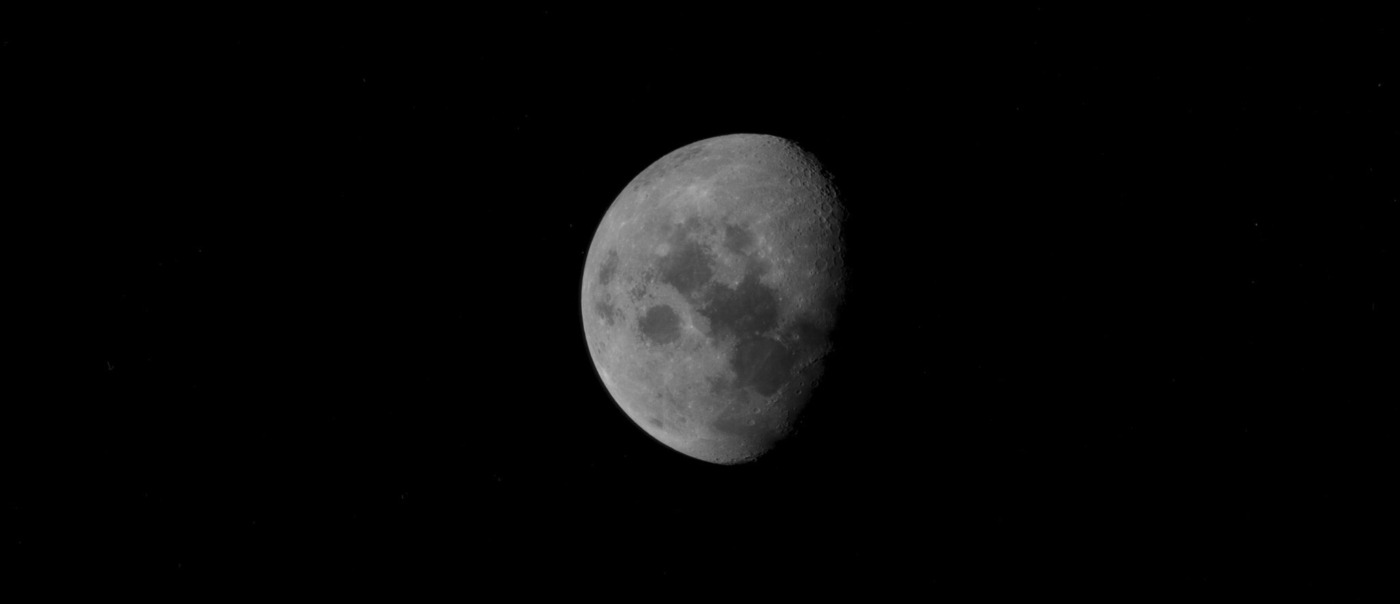‘Moonfall’ is Both Flavourless and Laughably Silly
In 1902, Georges Méliès took mankind on A Trip to the Moon in what has since been canonised as the very first sci-fi film. Over 120 years have passed since then and not once has the power of the moon as a cinematic symbol wavered. It has been depicted as a ball of cheese by Wallace and Gromit (A Grand Day Out) and shown to house the Nazis in 2012’s Iron Sky. The Moon is even linked to Stanley Kubrick, who became the centre of a mass conspiracy after 2001: A Space Odyssey allegedly got him hired to fake the 1969 Moon Landing. Yet even with over 120 years of moon-based lunacy to build from, Roland Emmerich’s Moonfall may be the most unfathomably ridiculous trip to the moon yet.
On its surface, the premise of Moonfall is admirably straightforward and self-explanatory: the title is Moonfall, and the moon does indeed fall. It is, truly, an exceptional disaster movie premise, one so agonisingly simple yet deliciously preposterous that it could be pitched between floors in an elevator ride and not lose an ounce of its nuance or gravitas. And indeed, for at least the first two acts of Moonfall, Emmerich certainly delivers on this premise: flying debris everywhere, tidal waves aplenty, destruction so excessive it makes Man of Steel’s final act look like a holiday brochure.
Unconvincing effects and regrettably lifeless direction… reduce the demolition to hollow spectacle and empty noise
It is a borderline gluttonous spectacle, almost gratuitous in its fetishization of annihilation, that occasionally delights through its sheer unhinged audacity. More frequently, however, Moonfall’s destruction is best characterised as an inert grey sludge, pampered by unconvincing effects and regrettably lifeless direction that reduce the demolition to hollow spectacle and empty noise. It is an action extravaganza “full of sound and fury, signifying nothing,” occasionally audacious enough to enjoy in mockery but ultimately hoisted by its own scope and ambition.
The movie’s opening conversation plays like a flavourless Tarantino riff, introducing two of our three main characters – astronauts Brian Harper and Jo Fowler (Patrick Wilson and Halle Berry respectively, each rather wooden) – as they fix a satellite while debating the lyrics to “Africa” by Toto and establishing, very early on, the upper limit of their meagre personalities.
Things swiftly go awry, however, when a mysterious force destroys the satellite, incapacitates Jo and forces Brian to guide the shuttle back to Earth without any power or assistance. He is initially celebrated as a hero but soon gets falsely blamed for the disaster and fired, sending his life into a perpetual downward spiral that ruptures his marriage, family and any hope of stable employment. This is all in the opening fifteen or so minutes, conveyed with no fewer than two distinctly specific time jumps, and rather elegantly sets the tone of dourness that encompasses Moonfall going forward.
A gleefully nonsensical disaster movie about the moon falling from the sky
Emmerich, as one of three (yes, three) co-writers, seems inexplicably convinced that Moonfall is a Shakespearean work and perpetuates such an overbearing self-seriousness throughout that the film almost becomes an unintentional comedy as the warring tones tear each other apart. On one hand, you have a gleefully nonsensical disaster movie about the moon falling from the sky, whereas on the other, quite confusingly, Emmerich deploys a completely unnecessary family drama about Brian’s strained relationship with his son, even giving the latter his own completely perfunctory subplot in the final act purely to bloat the run-time.
All the characters are one-note and their relationships are typically derivative, which is fine when the focus is on stopping a big boom but it illuminates the film’s exhausting mediocrity when attention shifts to their deeply uninteresting lives. Moonfall could not be in a luckier position given I am practically begging it to just be content with one-note stupidity, but it struggles with even that.
Their mission is as needlessly dramatic as it is blindingly ridiculous, comprised almost entirely of clunky dialogue and schlocky clichés
To this extent, the main plot of Moonfall is of course about our dutiful leads stopping the moon from falling, picking up roughly ten years after the aforementioned satellite explosion to reintroduce Brian as effectively homeless and Jo, conversely, as the Deputy Director of NASA. They are joined on their adventure by John Bradley’s K.C. Houseman, the conspiracy theorist that discovered the moon was falling and subsequently becomes the somewhat charming comic relief. Collectively, their mission is as needlessly dramatic as it is blindingly ridiculous, comprised almost entirely of clunky dialogue and schlocky clichés to deliver, at Moonfall’s best, a spectacle as deliciously cheesy as the Moon itself.
Take, for example, the outrageously implausible sequence in which a rocket attempts to launch betwixt the thunderous thralls of a tsunami wave, or even later than that when an absolutely bonkers third act twist goes so far off the rails into exposition and completely unnecessary complication that its very futility becomes paradoxically essential to the film’s survival as a ridiculous blockbuster. These are the moments, crucially, when Moonfall is at its best because they are the fleeting moments when it is not complacent; the rare instances that it takes a swing and, hit-or-miss, unflinchingly commits to the bit, no matter how absurd or laughably silly.
There is undoubtedly a lot to laugh at in Moonfall, resulting in a film that is at the very least never dull. Beyond these few moments, however, it is also regrettably uninspired and flavourless; a movie about the moon falling from the sky that has all the frustrated tedium of a pebble falling from a shoe.

Comments